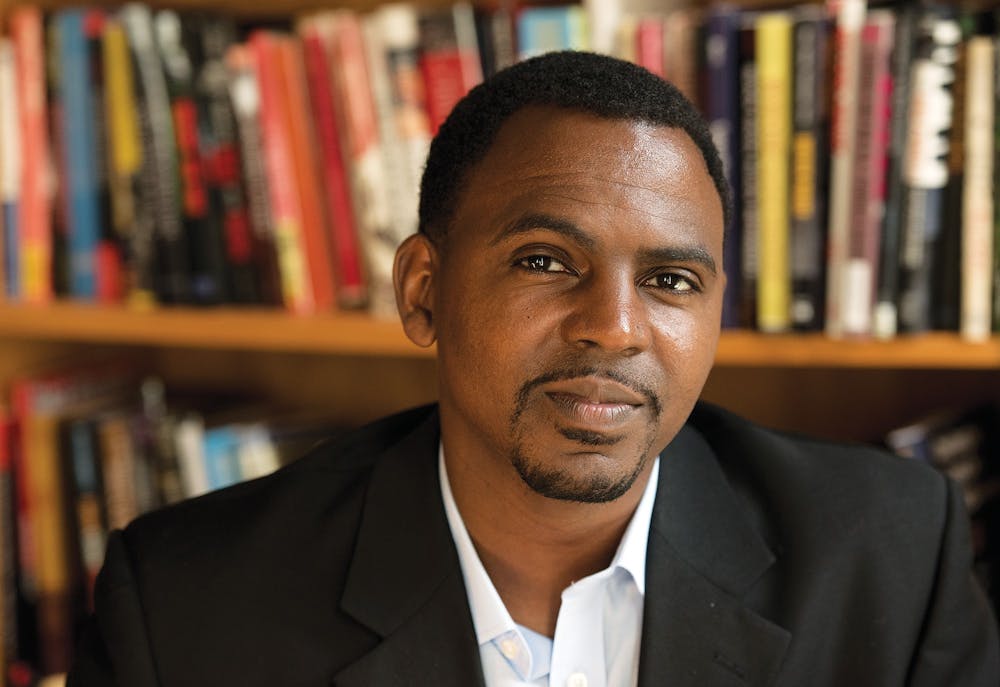In the last several weeks, student groups have been making an effort to circulate resources regarding the Black Lives Matter movement. Some of these groups, including the Penn Black Pre-Law Association, are compiling lists of classes for students to learn more about history and race dynamics at Penn.
One of the classes on this list is PSCI 231: Race & Ethnic Politics taught by professor Daniel Gillion. Gillion is the Julie Beren Platt and Marc E. Platt Presidential Distinguished Professor of Political Science at Penn. His research focuses on “racial and ethnic politics, political behavior, political institutions, public policy, and the American presidency.”
His first book The Political Power of Protest: Minority Activism and Shifts in Public Policy, looks into the ways minority protests can influence the government. His most recent book, Governing with Words: The Political Dialogue on Race, Public Policy, and Inequality in America is said to “demonstrates that the political dialogue on race offered by presidents and congressional members alters the public policy process and shapes societal and cultural norms to improve the lives of racial and ethnic minorities.”
In tune with Gillion’s research topics, PSCI 231 looks into the ways minority groups can bring about political change, taking a closer look at activism and voting. The course description states that the course “examines the role of race and ethnicity in the political discourse" using literature to examine the role of minority groups in politics, specifically diving into the experiences of African Americans, American Indians, Latinos or Hispanic Americans, and Asian Americans.
Gillion mentions that some of the topics the class looks into include the influence race had in the building of the United States, as well as multiple social movements including the Civil Rights movement, the Chicano movement, the Asian American movement, among others. These topics are discussed by looking into court cases, judicial rulings, congressional hearings, and passed bills historically.
The course is available to all undergraduate students, as it does not require prerequisites, and fulfills the Cultural Diversity in the United States requirement. The course consists of a midterm and a final, a paper, and participation, albeit, this is a small percentage.
Professor Gillion mentions that this specific course is neither the hardest nor the easiest class, but the students who demonstrate that they want to do well in the course will do so.
“I really feel passionate about what I teach. The people who take my class also carry that passion and it’s not just about learning something, it’s about doing well in life. It’s about succeeding and so what I teach is what I believe and I carry that through to my interactions with students,” Gillion says.
He mentions that one of the most exciting parts of the class is that it is very malleable; it constantly changes to reflect current events.
“As we are entering this election cycle, this class of race and ethnic politics is [going to] be particularly interesting, because people are going to react to race issues on a day–by–day basis,” he says. “You’re not just learning about history, you’re learning about your current situation, you’re learning about your life, the life that you are living, and how to improve that.”
In addition to PSCI 231, Gillion will be teaching PSCI 433: Social Movements, which he mentions will be helpful for students in understanding social movements and how they bring about change, including racial protests from the 60s all the way to the protests of 2020. He will also be teaching PSCI 533: Inequality & Race Policy which is a class for advanced undergraduates that “deals strictly with race and public policies that come.”
Many students are making an effort to learn more about race dynamics through Penn courses this year, and, as a result, Gillion has already received various emails in attempts to enroll in the course that is currently closed. He mentions that he is already looking into the opportunity of making the course larger to allow more students to participate. Gillion understands that, while the class will slightly change to include the current protests, the major structural change will be in the eagerness of students:
“Structurally, the only thing that’s going to change in my class is the enthusiasm that people will have. I mean, I think people are just going to be ready to learn,” Gillion says.

